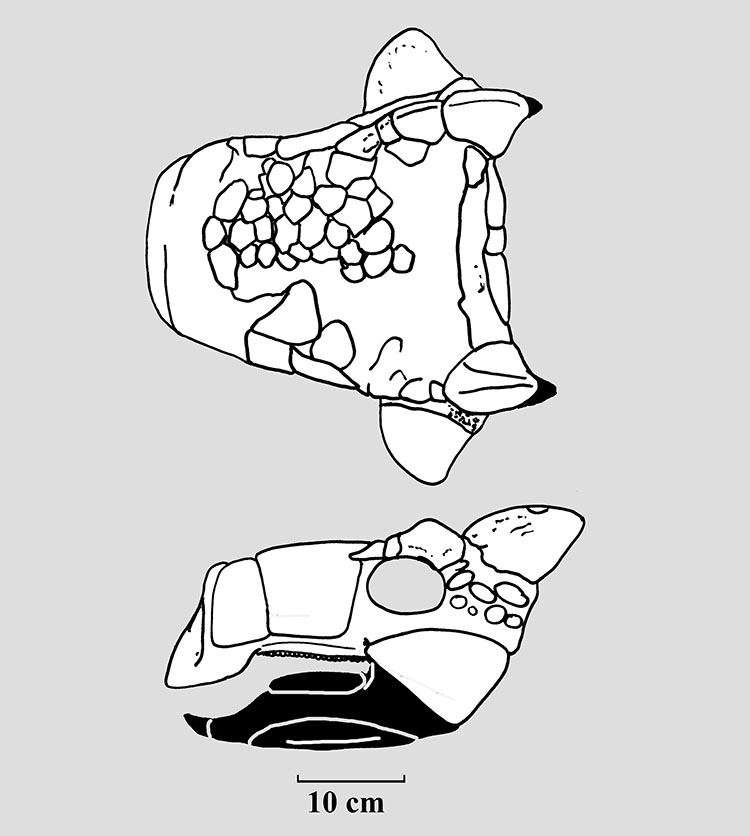
Genus: Oohkotokia PENKALKSI, 2014
Etymology: From the Blackfoot animate noun ooh'kotoka, meaning large stone
or rock, pluse Latin -ia, indicating made of or derived from, literally "
Child
of stone," an allusion to the all-encompassing armour. The generic name honours
the Blackfeet people, on whose land the specimen was found.
Species:
horneri PENKALKSI,
2014
Etymology: In honor of John R. Horner for his work on dinosaurs from Montana.
Holotype: MOR 433
Locality: MOR Locality TM-034, northwest of Cut Bank, Montana.
Horizon: Upper Two Medicine Formation.
Biostratigraphy:
Age: Judithian age, Campanian Stage, Senonian subepoch, Upper Gulf epoch, Late Cretaceous.
Material: A skull and fragmentary skeleton from Group 1 area of quarry.

Oohkotokia horneri (modified from PENKALKSI, 2014), Holotype: MOR 433.
Referred material:
MOR 363: A fragmentary skull from 60 m below the top of the Upper Two Medicine Formation.
NSM PV 20387: Partial skull, vertebrae, a partial pelvis, forelimb and hindlimb elements without feet, and one keeled osteoderm.
FPDMV-35: Undescribed specimen.
RTMP 2001.42.19:
USNM 7943:
= Dyoplosaurus sp GILMORE, 1930
Locality: South side of Milk River, NW 1/4, Sec. 27, T37N, R8W, on the Blackfeet Indian Reservation, Glacier County, Montana.
Horizon: Two Medicine Formation.
Biostratigraphy:
Age: Judithian age, Campanian Stage, Senonian subepoch, Upper Gulf epoch, Late Cretaceous.
Material:
USNM 11892: Top of skull and teeth.